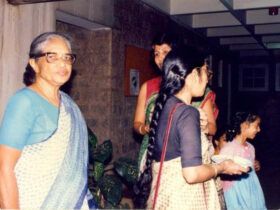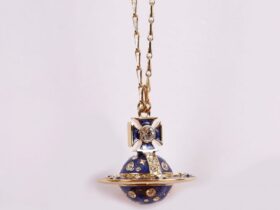Introduction to Oman and Its Rich Heritage
Welcome to the captivating land of Oman, where timeless traditions and rich heritage converge in a mesmerizing tapestry. Nestled on the southeastern coast of the Arabian Peninsula, this enchanting country is a treasure trove of history and culture. From ancient forts to vibrant festivals, Omani heritage offers a journey through times that will leave you awestruck.
As we delve into the depths of this incredible destination, prepare to be transported back in time as we explore the historical background of Oman. Uncover its fascinating past that has shaped its present-day identity and witness how centuries-old customs continue to thrive amidst modern influences.
But it’s not just history that defines Oman; it is also known for its exquisite arts and crafts. From intricately woven textiles to delicate silverware, traditional artisans showcase their exceptional skills passed down through generations. We’ll take you on a virtual tour of these remarkable creations that reflect Omani craftsmanship at its finest.
No trip to Oman would be complete without experiencing its vibrant cultural festivals and celebrations. Immerse yourself in the joyous atmosphere as locals come together to honor their traditions with music, dance, and colorful costumes. Witness these lively gatherings that celebrate everything from religious events to harvest seasons – each offering an unforgettable glimpse into Omani culture.
Historical Background of Oman
The historical background of Oman is rich and fascinating, spanning thousands of years. The earliest evidence of human habitation in Oman dates back to the Stone Age, with archaeological sites revealing tools and artifacts from this period. Throughout its history, Oman has been influenced by various civilizations, including the Persians, Portuguese, and Ottomans.
One significant era in Omani history is the reign of the Al Bu Said dynasty, which began in the 18th century. Under their leadership, Oman experienced a period of stability and prosperity. The Sultanate expanded its influence across East Africa and controlled important trade routes.
Oman has also played a pivotal role in maritime trade throughout history. Its strategic location along major shipping routes made it an essential hub for traders from around the world. This position allowed Omanis to establish strong connections with other cultures and fostered economic growth.
In addition to its commercial significance, Oman has a deep-rooted Islamic heritage that continues to shape society today. Islam was introduced to Oman during the lifetime of Prophet Muhammad (peace be upon him) by early converts who traveled from Mecca.
Exploring the historical background of Oman provides insight into how this nation evolved over time. It sheds light on its vibrant past as a crossroads for different civilizations and highlights its enduring cultural identity rooted in Islam.
Traditional Arts and Crafts of Oman
Oman is a country known for its rich cultural heritage, and this is reflected in the traditional arts and crafts that have been passed down through generations. The art forms found in Oman are diverse and unique, each with its own story to tell.
One prominent form of art in Oman is the weaving of textiles. Skilled weavers create intricate designs using vibrant colors, often depicting scenes from nature or geometric patterns. These textiles are not only visually stunning but also serve as important symbols of Omani identity and pride.
Another significant craft in Oman is pottery-making. Artisans mold clay into various shapes such as bowls, plates, and vases before firing them to create durable objects. Each piece tells a tale of tradition and craftsmanship, showcasing the skilled hands that created it.
Metalwork is yet another prized artistic practice in Oman. Craftsmen skillfully shape copper or silver into beautiful jewelry pieces like necklaces, bracelets, and earrings adorned with intricate motifs inspired by nature or architectural elements.
Wood carving is also highly regarded in Omani culture. Craftsmen use their expertise to carve delicate patterns onto wooden doors, windowsills, furniture pieces, creating stunning works that showcase both talent and dedication.
In addition to these visual arts practices, music holds an essential place within Omani culture as well. Traditional musical instruments like the oud (a stringed instrument) are used to play melodies steeped in local folklore during special occasions or celebrations.
These traditional arts and crafts provide a window into Omani heritage while preserving ancient traditions for future generations to appreciate and enjoy.
Cultural Festivals and Celebrations in Oman
Oman is a country that takes pride in its rich cultural heritage, which is beautifully showcased through its vibrant festivals and celebrations. These events provide an opportunity for locals and tourists alike to immerse themselves in the traditional customs and practices of this enchanting nation.
One such festival is the Muscat Festival, held annually in the capital city of Muscat. This month-long extravaganza celebrates Omani culture through various exhibitions, performances, and activities. Visitors can indulge in traditional music concerts, dance performances, art showcases, delicious food stalls, and exciting amusement park rides.
Another prominent event is the Salalah Tourism Festival, which takes place during the Khareef season. This festival embraces the natural beauty of Salalah while capturing the essence of Omani traditions through camel racing competitions, folklore dances like Al Razha as well as showcasing local handicrafts at bustling markets.
Furthermore, Oman also hosts religious festivals such as Eid al-Fitr and Eid al-Adha with great enthusiasm. During these occasions, families come together to celebrate by dressing up in traditional attire (thobe for men and abaya for women), exchanging gifts, and enjoying festive meals.
The National Day Celebration on November 18th holds significant importance for all Omanis as it commemorates their independence from Portuguese colonization. The streets are adorned with colorful decorations; parades take place showcasing military prowess along with cultural performances representing different regions of Oman.
These cultural festivals not only offer entertainment but also serve as a platform to preserve Omani heritage by passing down traditions from one generation to another. It’s truly a captivating experience witnessing these celebrations firsthand!
So if you’re planning a trip to Oman anytime soon make sure to check out their calendar of events because there’s no better way than being part of these festivities to understand the heartwarming spirit found within times past!
Exploring Omani Cuisine
Omani cuisine is a delightful blend of flavors and influences from the Middle East, Asia, and Africa. It reflects the rich history and diverse cultural heritage of the country. The traditional Omani dishes are known for their simplicity yet exquisite taste.
One of the staple foods in Oman is rice. It is often served with tender lamb or chicken, flavored with aromatic spices like saffron and cardamom. This combination creates a mouthwatering biryani that will leave you craving for more.
Seafood also plays a significant role in Omani cuisine since Oman has a long coastline along the Arabian Sea. Grilled fish, shrimp, and lobster are some popular choices among locals and tourists alike.
Another must-try dish is shuwa, which is prepared by marinating meat (usually lamb) with various spices such as cinnamon, cloves, and black lime before slow-cooking it underground for up to 48 hours! The result is incredibly tender meat that falls off the bone – truly worth the wait!
For those with a sweet tooth, Omani desserts are sure to satisfy your cravings. Halwa, made from sugar or honey mixed with nuts or rosewater essence gives it its distinct flavor – perfect for indulging after a satisfying meal.
To wash down all these delicious flavors, do not forget to try traditional Omani drinks such as kahwa (Arabic coffee) infused with cardamom or mint tea – both provide an authentic taste of Oman’s hospitality.
Exploring Omani cuisine allows you to experience an array of unique flavors that reflect centuries-old traditions passed down through generations. So next time you visit Oman don’t miss out on tasting these culinary delights!
Conclusion
As we have journeyed through the rich heritage of Oman, it is evident that the country’s history and traditions are deeply rooted in its culture. From its ancient forts to its vibrant festivals, Oman offers a captivating experience for those seeking to immerse themselves in the times of Oman.
The historical background of Oman provides insight into the resilience and determination of its people. Through centuries of trade and exploration, Omani society has evolved while still maintaining strong ties to its past. The traditional arts and crafts showcase the creativity and craftsmanship handed down through generations, preserving a unique identity that sets Oman apart.
Cultural festivals and celebrations offer an opportunity to witness firsthand the vibrancy of Omani traditions. Whether it’s witnessing camel races at Al-Mazayin or joining in on traditional dance performances during Muscat Festival, these festivities provide a glimpse into the lively spirit that thrives within Omani communities.
So pack your bags, embark on this adventure back in time, explore all that beautiful Oman has to offer! Experience firsthand how this stunning land merges history with contemporary living – all against a backdrop as picturesque as any postcard you’ve ever seen!
Come join us on this mesmerizing journey through times of Oman!

































